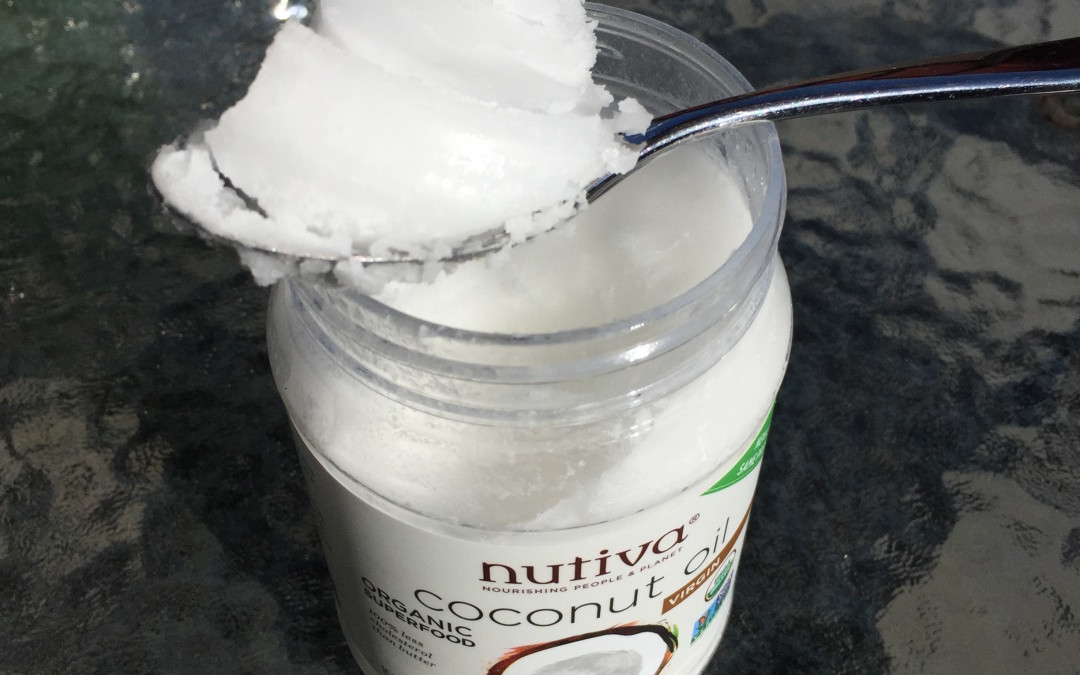Coconut oil is front and center on grocery store shelves these days, and it’s likely used regularly in your kitchen too. We have all heard that coconut oil is good for us with many sources claiming it has almost magic-like health benefits.
With all of this hype, what’s really true? Is there science to support the claims or is coconut oil just another fad?
Coconut oil originally got a bad rap due to its high saturated fat content and its effect on cholesterol levels. In fact, it was considered the worst oil for heart health.
Upon further studies, it was discovered that about half of the saturated fat in coconut oil is a medium chain triglyceride called lauric acid. Unlike most saturated fat, lauric acid has been shown to raise the “good” cholesterol.1 This discovery indicates that coconut oil has promising properties for heart health, but research is still limited.
Walter C. Willett, M.D. from the Department of Nutrition at the Harvard School of Public Health advises people to use coconut oil sparingly because “most of the research so far has consisted of short-term studies to examine its effect on cholesterol levels.” Willett confirms that doctors still don’t know how coconut oil will affect heart disease long-term, so “it’s still probably not the best choice among the many available oils for heart health.”
Plant-based oils, like coconut oil, do have a variety of healthy antioxidants. The benefits of food high in antioxidants are well founded, but difficult to predict. If a study done on antioxidants proves that they may be helpful in the treatment of Alzheimer’s 2, is it fair to extrapolate that coconut oil does that same because it contains antioxidants? Of course not. However, this is where many of these magic claims come from.
Coconut oil has such a unique taste that a small amount can add a lot of flavor to certain dishes. We love it both in homemade Thai and Indian food.
Coconut oil is not magic though, so there’s no need to put it in everything you eat. We still recommend the less sexy, old school extra virgin olive oil to be your primary oil due to the conclusive research studies backing its health benefits.
In summary, use coconut oil just as you would any other healthy oil – in moderation due to its high calorie content.
Do you have a nutrition question that you’ve always wondered about? Get in touch here, and your question may be featured in our next “Ask The Nutritionist” column.
1 http://www.ncbi.nlm.nih.gov/pubmed/12716665
2 http://www.ncbi.nlm.nih.gov/pubmed/22431837


What To Eat Before & After Your Workouts
Enter your email for FREE access to the exclusive resource.
You have Successfully Subscribed!
100% privacy. No spam.